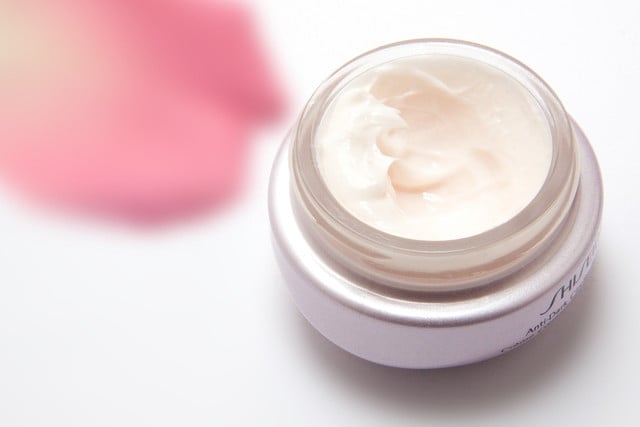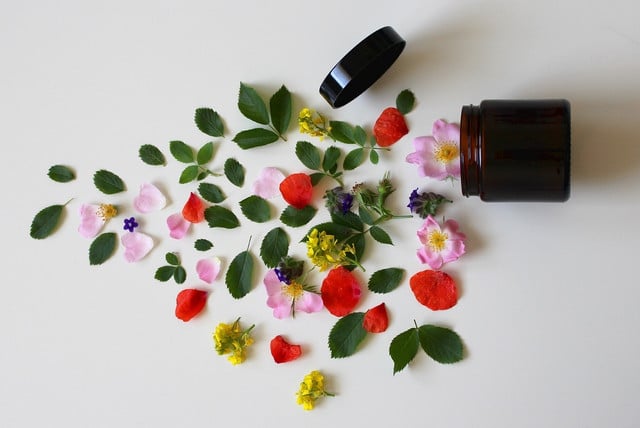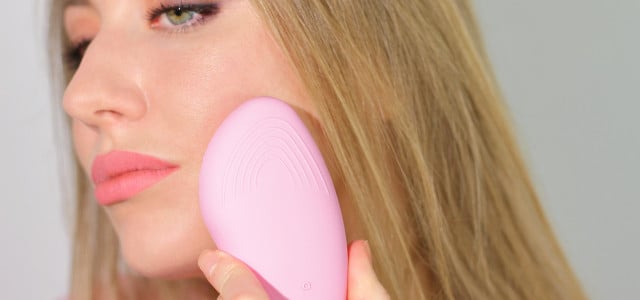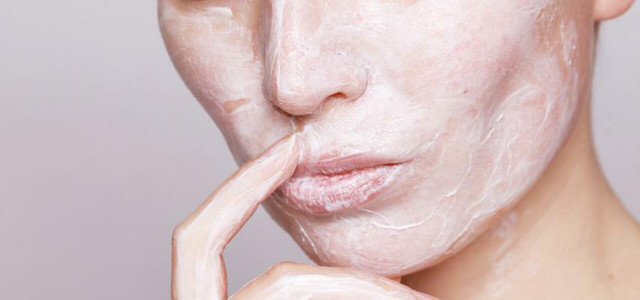Avoiding comedogenic ingredients keeps your skin clear and avoids nasty blackheads. Learn more with our guide to avoiding comedogenic ingredients.
Many skin care products, from moisturizers to face masks, claim to unclog pores and keep skin healthy. However, certain ingredients used in these products have been shown to do the opposite. Among those, the chief suspect is comedogenic ingredients. Here is what comedogenic ingredients are and how you can avoid them while caring for your skin.
What are Comedogenic Ingredients?

(Foto: CC0 / Pixabay / stux)
Comedogenic ingredients are defined as any element or substance that easily clogs pores. The main concern about comedogenic products is that they often cause blackheads. A product is comedogenic if it causes open and closed comedones (whiteheads and blackheads) or blocks our skin’s pores. These clogs widen the opening of pores and react with oxygen, leading to blemishes recognized as blackheads.
Common Comedogenic Ingredients to Avoid



(Foto: CC0 / Pixabay / Monfocus)
Around 120 different comedogenic ingredients trigger acne and breakouts. Below, we list five of the most commonly used ingredients and the products they’re typically found in.
Note: Everyone’s skin is different, and we don’t all experience breakouts from comedogenic ingredients. If your cosmetics and skin care products have not caused blemishes or you aren’t particularly sensitive to acne, your products are likely still okay.
- Palm oil: Known for its negative environmental impact, palm oil also blocks pores. This vegetable oil, usually found in cosmetics in its kernel oil form, is in makeup wipes, mascaras, concealer, and eye pencils. This comedogenic ingredient can be hard to avoid, as it is a common emulsifier in skin care products and flies under Cetearyl Alcohol.
- Oleyl alcohol: This variety of alcoholic ingredients, as well as most other alcoholic ingredients in skin care, are comedogenic. Not only does Oleyl alcohol dehydrate skin, but it enlarges the appearance of pores and encourages the overproduction of oil. Common products with Oleyl alcohol are foundations, eye makeup, moisturizers, and facial washes.
- Coconut oil: Coconut oil, often used as a natural moisturizer and cooking ingredient, may be the cause of your acne. Although sometimes soothing in its natural form, coconut oil isn’t helpful for sensitive skin. It suffocates pores and worsens existing acne. Coconut oil is in many lip balms, face oils, moisturizers, and eye creams.
- Lanolin acid: Also known as Acetylated lanolin, lanolin acid is another comedogenic ingredient. It is made from extracts from sheep’s wool and can moisturize and soften skin — but it also clogs pores. You can find lanolin in makeup removers, lotions and lip balms.
- Avocado Oil: Avocado oil pops up in skin care serums and oils in both its refined and unrefined forms and sometimes clogs pores. One of its main ingredients is Oleic acid, a highly comedogenic substance. Avocado oil is often found in skin oils, serums, and lip masks.
Skin Care Alternatives
Avoiding comedogenic ingredients altogether can be difficult and often expensive, especially when companies are not transparent about what is in their products. However, there are other ways to keep your skin healthy and avoid comedogenic ingredients.
- Make your own cosmetics. Finding a product to keep your skin healthy without accidentally irritating it or using a comedogenic ingredient can be difficult. However, one alternative is DIY beauty products. Making your own beauty products is economical and fun, and gives you full control over which ingredients you use. Check out our guides to DIY lip scrubs, face masks, moisturizers, and body scrubs.
- Buy small and organic: Instead of buying from large corporations and mainstream beauty brands, purchase your cosmetics and skin care products from small businesses and brands that specifically list organic ingredients. This is a good way to avoid palm oil and avocado oil which are listed as something else or mixed in as emulsifiers. Buying from organic and small businesses is also an easy way to keep your beauty products ethical and sustainable.
Read more:
- 8 Natural Home Remedies for Blackheads
- How to Exfoliate Skin Naturally at Home
- Rose Water for Skin: Benefits and How to Use It
Important Information regarding Health-related Topics.
** Links to retailers marked with ** or underlined orange are partially partner links: If you buy here, you actively support Utopia.org, because we will receive a small part of the sales proceeds. More info.Do you like this post?








